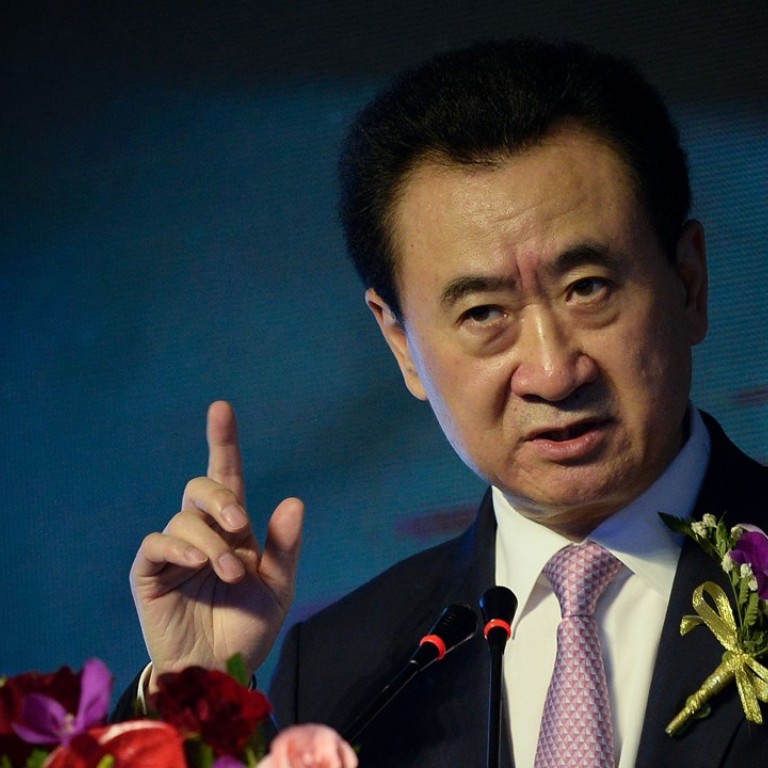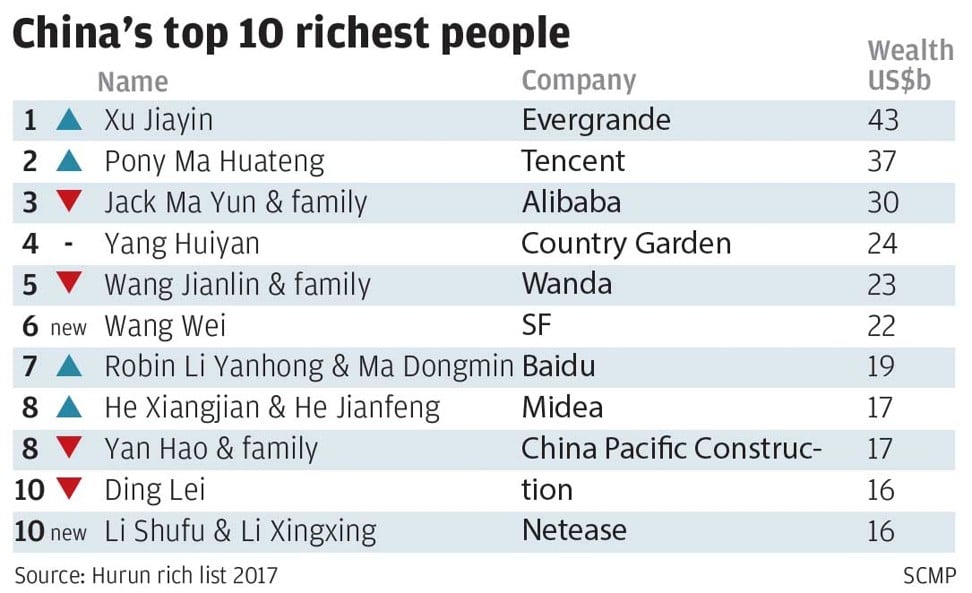
One of the biggest Chinese asset buyers says Wanda’s spendthrift, cash-burning days are over
Group to slash debt, sell non-core assets and target 9 per cent increase in 2018 revenue.
Dalian Wanda Group, one of China’s biggest private enterprises, will further cut debt “through all available means”, including the sale of non-core assets and stake disposal on the basis of maintaining power of control, said group founder and chairman Wang Jianlin.
Wanda will require “two to three years to bring down debt to an absolutely safe level” and will “avoid any credit default globally”, he said in a speech to staff members on January 20 that was cited by the company’s website on Sunday.
Offshore groups wholly or partly owned by Dalian Wanda have US$10.7 billion in outstanding long-term debt, according to S&P Global Market Intelligence.
The group – along with Anbang Group, HNA Group and Fosun Group – was put under a spotlight by the Chinese government last year for running up large amounts of debt to fuel acquisitions.
Wang offloaded most of Dalian Wanda’s hotel and tourism portfolio to rivals for US$9.3 billion in July.
“We only need to sell half our overseas assets to pay off all the debt, which shows that we made money between when we bought and sold them,” said Wang, without specifically stating which businesses could be sold.
But clues could yet be found in his portfolio performance analyses.
Film and cinema was one of only two units that missed growth targets for 2017. It reported 53.2 billion yuan (US$8.3 billion), or 98.5 per cent of the growth target, in sales.
“Sales in the sector were a bit low … I mean the whole sector with overseas business. The domestic units reached targets,” said Wang.
The unit is Dalian Wanda’s biggest overseas acquisition, and includes the US$2.6 billion takeover of AMC Entertainment, North America’s largest cinema chain, and the US$3.5 billion takeover of film studio Legendary Entertainment. The company aborted plans to inject Legendary into its China listed Wanda Cinema in August 2016, having acquired the studio in January the same year.
The company’s worst-performing subsidiary, Wanda Internet Technology Group, realised only 90.1 per cent of its revenue target, at 5.86 billion yuan.
“I had made a mistake. That is, giving Qu Dejun too much money,” he said, referring to the president of Wanda Internet Technology.
The subsidiary, set up in 2016, was Wanda trying to catch up with the new tide of e-commerce, digital payments and internet finance. But it was reported widely in the media that the company had run into difficulties and was to lay off 6,000 employees.
Wang said these reports overstated the size of the lay-offs, and did not set a revenue target for the company for 2018, saying it would depend on “cooperation with a global internet giant”.
Dalian Wanda’s main commercial real estate arm reported a 21 per cent plunge in revenue last year to 112.5 billion yuan, but it was still 104.1 per cent of its annual target.
Wang was “addressing regulators as much as investors”, said Brock Silvers, the founder and managing director of Kaiyuan Capital, a Shanghai-based investment advisory.
“Wanda has been diligently unwinding offshore deals as it reduces debt, and only last week announced the sale of its One Nine Elms London project … This sale may have been intended to occur just prior to the release of 2017 results … As Wanda domestically refocuses, it has a lot to prove in the coming year,” he said.
As much as 93 per cent of Wanda’s 700 billion yuan worth of assets were in China last year, Wang said, singling out the figure for mention at the start of his 10,000-word speech.
We only need to sell half our overseas assets to pay off all the debt, which shows that we made money between when we bought and sold them
“Why do we single out this data point? People said Wanda had been transferring our assets overseas. The data shows this is completely untrue,” said Wang.
A “credible solution” has been found to finance the transaction, Wang said, without elaborating. Wanda Commercial’s Hong Kong shares have been suspended since April 2016, pending disclosure of the price and timetable of its potential general offer.
Wang projected a 9 per cent increase in the company’s 2018 revenue, as it regains its growth momentum after a year under regulatory scrutiny for its debt-fuelled overseas shopping spree.
Sales will increase to 247.9 billion yuan in 2018, after declining by 10.8 per cent year on year in 2017 to 227.4 billion yuan, the company said in a post on its WeChat account, citing Wang’s speech.
“We should avoid burning big money or playing with concepts, but focus on actual results,” he said.


